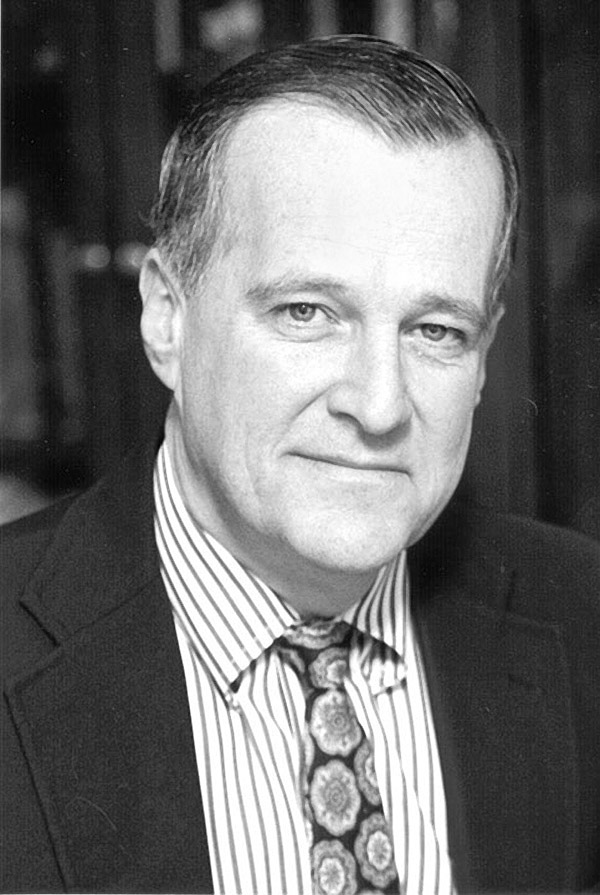Contact: Joe Farris

Donald McCabe
A leading scholar on college cheating-including who does it, why, and how to help prevent it-will be the keynote speaker at a March 20 symposium on academic ethics at Mississippi State University.
Donald McCabe, a professor of organization management at Rutgers University and the founding president of the Center for Academic Integrity at Duke University, leads a 3:30 p.m. public program titled "Who Cheats? Who Doesn't? Who Cares?" Free and open to the public, his presentation will take place in the McComas Hall theater.
McCabe's remarks will include results of a survey of MSU student perspectives on cheating. He also will highlight the day's exploration of academic honesty issues and how academic integrity can better be promoted on campus.
Drawing on more than a decade of widely published research, including surveys of more than 16,000 students at more than 60 colleges and universities, McCabe also will meet with multiple faculty, student and administrative groups to examine the climate for academic integrity at MSU and methods to improve it.
According to McCabe, nationwide research documents significant increases in student cheating over the past three decades. Some recent surveys suggest that more than half of students on some campuses have engaged in serious cheating on a test or exam.
A common view of surveyed students indicates that they may feel compelled to cheat in order to "level the playing field." These feelings apparently arise because they believe their competitors for good grades, jobs, and graduate school slots are gaining a dishonest advantage, he reports. Students also sometimes blame faculty members for not acting more aggressively to curb cheating, allowing students who otherwise would be honest to be placed at a competitive disadvantage by those who cheat.
A bright spot in research by McCabe and others is that honor code systems apparently significantly reduce cheating on campuses that use them. In a recent survey at large universities, one-third of students at honor code schools admitted to cheating at least once, compared with nearly half at non-code schools. One in six students at non-code schools acknowledged repeated cheating on tests and exams, compared with as few as one in 16 at honor code schools.
Honor codes appear to work by getting students actively involved in taking responsibility for academic integrity and by creating a peer culture that makes cheating socially unacceptable, McCabe suggests.
"The activities planned for March 20 are just the starting point for a self-examination that we hope will lead to a stronger climate of academic integrity at the university," said Eddie Keith, director of student life at MSU and chair of the symposium planning committee. "We hope that many students and faculty will become involved in ongoing discussions and efforts to raise awareness of academic integrity issues."
In preparation for the upcoming symposium, a random sample of MSU students was asked to complete a confidential online survey on academic integrity that has been administered to thousands of students nationwide.
McCabe will analyze the responses to questions concerning the campus climate for academic integrity, perceptions of what constitutes cheating, perceptions of the extent and type of cheating by others, and whether the surveyed students themselves have cheated in any of a variety of ways.
Earlier research by McCabe suggests that cheating is more frequent at larger, less selective institutions, that men cheat more than women, and-not surprisingly-students are more likely to cheat when they think there's less chance of being caught.
MSU confronted the cheating issue firsthand last semester when it was learned that dozens of students had access to a pilfered copy of a freshman algebra exam. The results of that test were thrown out and campus disciplinary and off-campus judicial proceedings were initiated against students who could be linked directly to the incident.
Cheating involving large numbers of students was reported around the same time at the University of Virginia and at Georgia Tech, among other institutions.
Symposium speaker McCabe spent 20 years in the corporate world before joining Rutgers in 1988. Last year he surveyed 4,500 high school students on cheating and is conducting a new study of college students in the U.S. and Canada during the spring.
The Center for Academic Integrity that McCabe helped establish is a consortium of more than 300 schools formed to promote integrity among college students. The center is associated with the Kenan Institute for Ethics at Duke University.
For additional information on the symposium, contact Keith at (662) 325-2513.